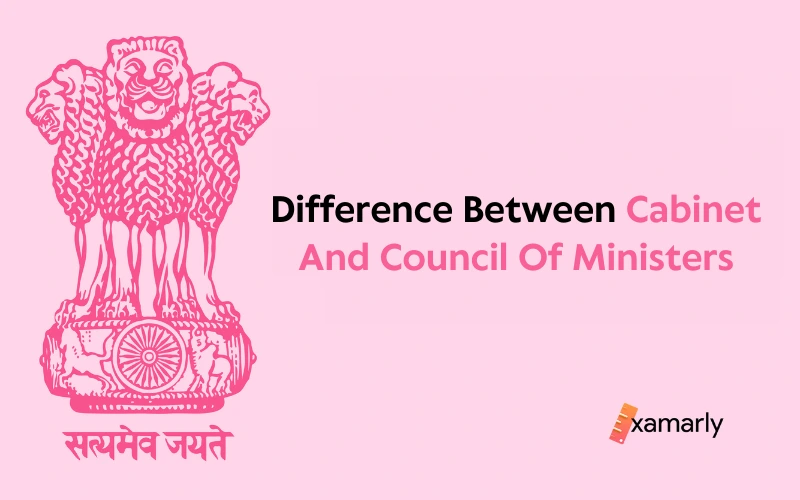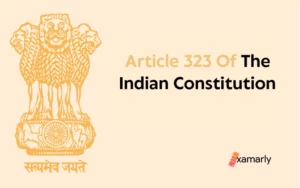An Overview
The Cabinet and Council of Ministers play a vital role in the governance of a country. The Cabinet is a group of senior government officials, typically including the Prime Minister and other Ministers, who are responsible for making important policy decisions.
The Council of Ministers is a larger group that includes all the Ministers, as well as other government officials who are responsible for implementing government policies.
The terms “Cabinet” and “Council of Ministers” are often used interchangeably, but there is some difference between Cabinet and Council of Ministers. In this blog, we will explore the key distinctions between the Cabinet and the Council of Ministers, and their roles in the functioning of a government.
- An Overview
- What Is The Cabinet?
- What Is The Council Of Ministers?
- Difference Between Cabinet And Council Of Ministers
- Summing Up
- FAQs Related To Cabinet And Council Of Ministers
- What Is A Cabinet?
- What Is The Council Of Ministers?
- What Is The Difference Between A Cabinet And A Council Of Ministers?
- How Are Cabinet Members Appointed?
- How Often Does The Cabinet Meet?
- What Is The Role Of The Council Of Ministers?
- How Long Do Members Of The Cabinet Or Council Of Ministers Typically Serve?
What Is The Cabinet?
The Cabinet is a group of senior government officials, who are appointed by the President or the Prime Minister. The Cabinet is responsible for making important policy decisions and providing direction to the government.
The Cabinet is typically composed of the heads of the major government departments, such as the Treasury, Home Office, and Foreign Office.
In most countries, the Cabinet is headed by the Prime Minister or the President, and its members are collectively known as the Cabinet Ministers. The Cabinet is responsible for making important policy decisions, and its decisions are binding on the entire government.
The Role Of The Cabinet
The Cabinet is a small group of senior government officials who are responsible for making important policy decisions. The Cabinet is typically headed by the Prime Minister, who is the head of the government.
Some of the roles and responsibilities of the Cabinet have been listed below.
- The Cabinet is responsible for making decisions on a wide range of issues, including economic policy, foreign policy, and national security.
- One of the main responsibilities of the Cabinet is to develop and implement government policies. The Cabinet is responsible for setting the overall direction of government policy and for making decisions on specific issues.
- The Cabinet also plays a key role in the budget process, helping to set spending priorities and allocating resources to different government programs.
- Another important responsibility of the Cabinet is to provide advice and guidance to the Prime Minister. The Cabinet members are experienced politicians and experts in their respective fields, and they use their knowledge and expertise to advise the Prime Minister on key issues.
- The Cabinet also plays a key role in coordinating the work of different government departments, ensuring that policies are consistent and that different departments are working towards common goals.
What Is The Council Of Ministers?
The Council of Ministers, also known as the Council of Cabinet Ministers, is a larger body that includes not only the Cabinet Ministers but also other ministers.
The Council of Ministers is typically headed by the Prime Minister, and it meets regularly to discuss government business. It is responsible for coordinating the work of the government, and ensuring that government policies are implemented.
The Role Of The Council Of Ministers
The Council of Ministers is a larger group that includes all the Ministers, as well as other government officials who are responsible for implementing government policies.
Some of the major roles and responsibilities of the Council of Ministers have been listed below.
- The Council of Ministers is responsible for overseeing the work of government departments and ensuring that policies are being implemented effectively.
- The Council of Ministers is also responsible for coordinating the work of different government departments, ensuring that policies are consistent and that different departments are working towards common goals. The Council of Ministers meets regularly to discuss and review government policies, and to make decisions on specific issues.
- The Council of Ministers also plays a key role in the budget process, helping to set spending priorities and allocating resources to different government programs.
- The Council of Ministers is responsible for reviewing and approving the government’s budget, and for making decisions on how resources will be allocated to different programs.
Difference Between Cabinet And Council Of Ministers
While the Cabinet and the Council of Ministers are both important parts of the government, there are some key differences between the two.
The Cabinet is a smaller group of senior government officials, who are responsible for making important policy decisions. The Council of Ministers is a larger body that includes not only the Cabinet Ministers but also other ministers, as well as other government officials who are responsible for implementing government policies.
The Cabinet is also typically more powerful than the Council of Ministers, as its decisions are binding on the entire government. The Council of Ministers, on the other hand, is responsible for coordinating the work of the government, and for ensuring that government policies are implemented.
Another key difference is that the Cabinet is responsible for providing advice and guidance to the Prime Minister, while the Council of Ministers is responsible for overseeing the work of government departments and ensuring that policies are being implemented effectively.
The table given below will help to understand the role of the Cabinet and the Council of Ministers in governance in a comprehensive manner.
| Points of Comparison | Cabinet | Council of Ministers |
|---|---|---|
| Composition | A small group of senior government officials | A larger group including all Ministers and other government officials |
| Role | Making important policy decisions | Implementing government policies and overseeing government departments |
| Head | Headed by the Prime Minister | Not headed by a single individual |
| Responsibilities | Developing and implementing government policies, providing advice and guidance to the Prime Minister, coordinating the work of different government departments | Overseeing the implementation of government policies, coordinating the work of different government departments, reviewing and approving the government’s budget |
| Size | Small | Large |
| Decision-making | Makes decisions on a wide range of issues | Reviews and approves decisions made by the Cabinet |
| Budget Process | Plays a key role in setting spending priorities and allocating resources | Reviews and approves the government’s budget and makes decisions on resource allocation |
| Policy development | Develops and implements policies | Oversees the implementation of policies |
| Coordination | Coordinates the work of different government departments | Coordinates the work of different government departments and ensures consistency of policies |
| Advice and guidance | Provides advice and guidance to the Prime Minister | Not responsible for providing advice and guidance |
| Implementation | Not responsible for implementing policies | Responsible for implementing policies and overseeing their implementation |
| Expertise | Members are experienced politicians and experts in their respective fields | Not necessarily experts in specific fields, but responsible for ensuring the effective implementation of policies |
| Meetings | Meets regularly | Meets regularly |
| Representation | Represent the whole government | Represent the whole government |
| Decision-making authority | Has decision-making authority | Reviews and approves decisions made by the Cabinet |
Summing Up
After a thorough understanding of the article, the key learnings have been mentioned below.
- The Cabinet and Council of Ministers play a vital role in the governance of a country. The Cabinet is responsible for making important policy decisions, while the Council of Ministers is responsible for overseeing the implementation of those policies.
- Both the Cabinet and Council of Ministers are important for ensuring that government policies are effective and consistent and that resources are allocated to where they are needed most.
- It is important to understand the roles of the Cabinet and Council of Ministers because they are responsible for making decisions that affect the lives of citizens in various ways and understanding their role in governance can help citizens to be informed and engaged in the decisions that are being made.
You Might Also Like:
FAQs Related To Cabinet And Council Of Ministers
What Is A Cabinet?
A Cabinet is a body of high-ranking government officials, typically comprising the top leaders of the executive branch of a country’s government. The Cabinet is responsible for making important policy decisions and advising the head of government.
What Is The Council Of Ministers?
The Council of Ministers is a group of high-ranking government officials appointed by the head of government to manage the executive branch of a country’s government. The Council of Ministers is typically headed by the Prime Minister or President and is responsible for implementing government policies and making important decisions.
What Is The Difference Between A Cabinet And A Council Of Ministers?
While the terms are often used interchangeably, a Cabinet is typically made up of the top leaders of the executive branch, while the Council of Ministers is a broader group that includes all members of the executive branch. In some countries, the Cabinet may be a subgroup of the Council of Ministers.
How Are Cabinet Members Appointed?
Cabinet members are typically appointed by the head of government, such as the President or Prime Minister. The appointments are typically made on the basis of political considerations, such as party affiliation, regional representation, and expertise in specific policy areas.
How Often Does The Cabinet Meet?
The frequency of Cabinet meetings varies depending on the country and the specific government in power. Some Cabinets may meet daily, while others may meet only on a weekly or monthly basis.
What Is The Role Of The Council Of Ministers?
The role of the Council of Ministers is to advise the head of government and implement government policies. The Council of Ministers is also responsible for making important decisions and managing the day-to-day operations of the executive branch.
How Long Do Members Of The Cabinet Or Council Of Ministers Typically Serve?
The length of time that members of the Cabinet or Council of Ministers serve can vary depending on the country and the specific government in power. Some members may serve for the entire duration of the government’s term, while others may serve for shorter periods.






